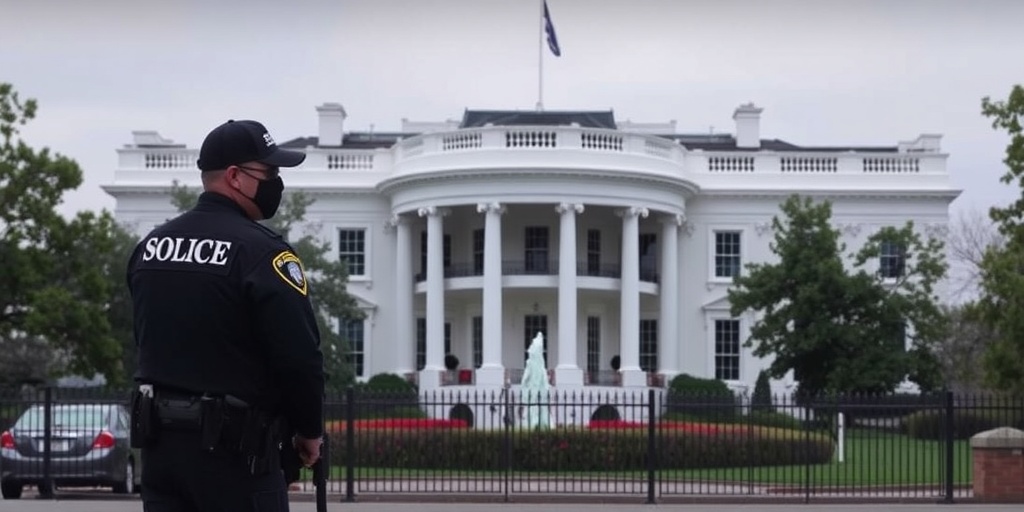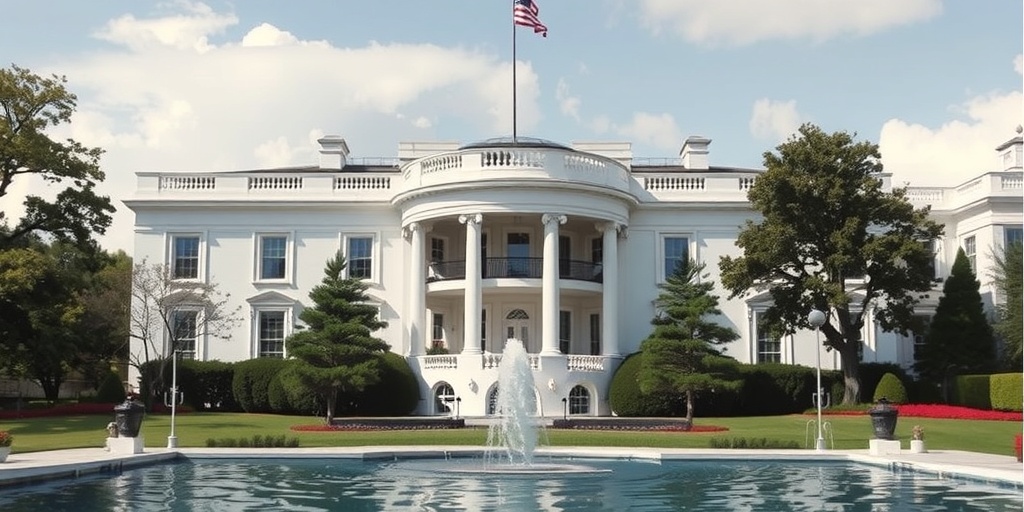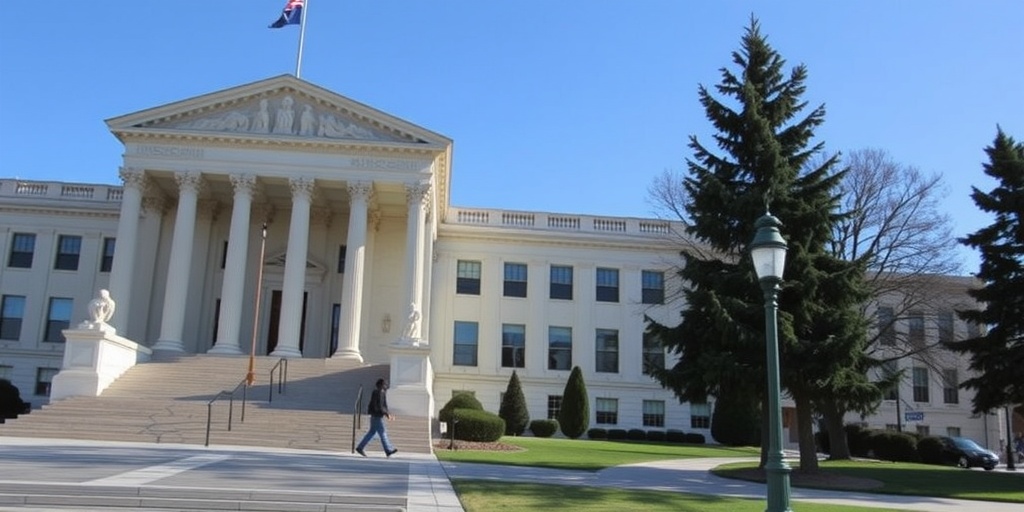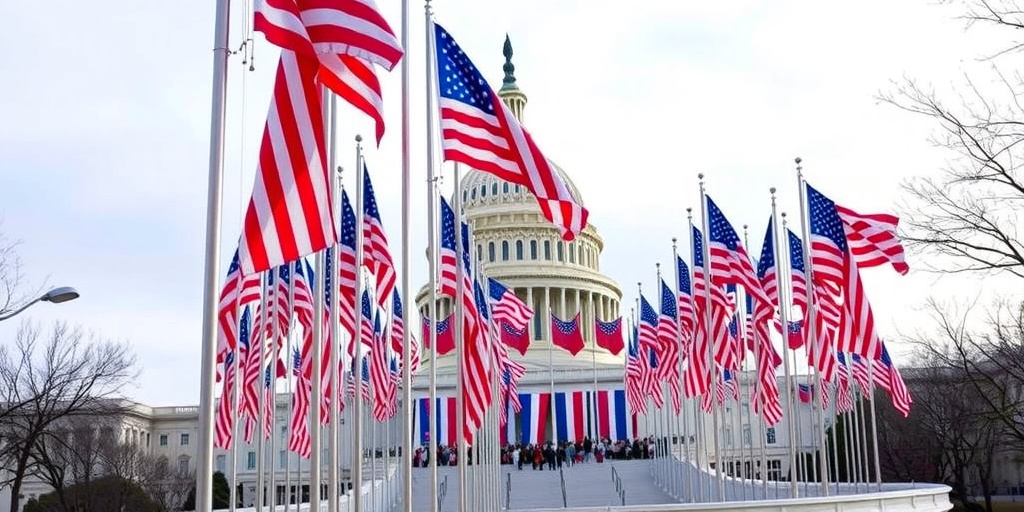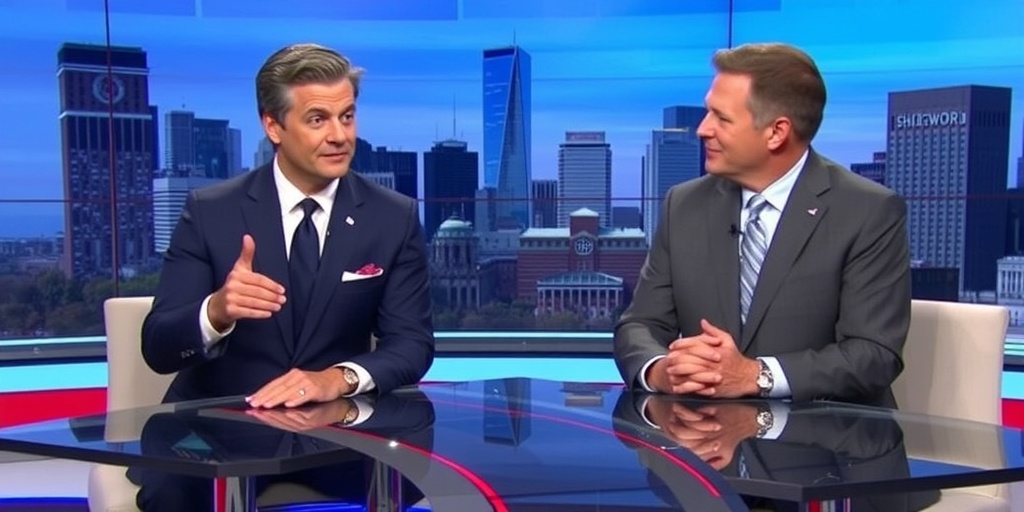Now Reading: Flags at Capitol Hill Raised for Inauguration
-
01
Flags at Capitol Hill Raised for Inauguration
Flags at Capitol Hill Raised for Inauguration
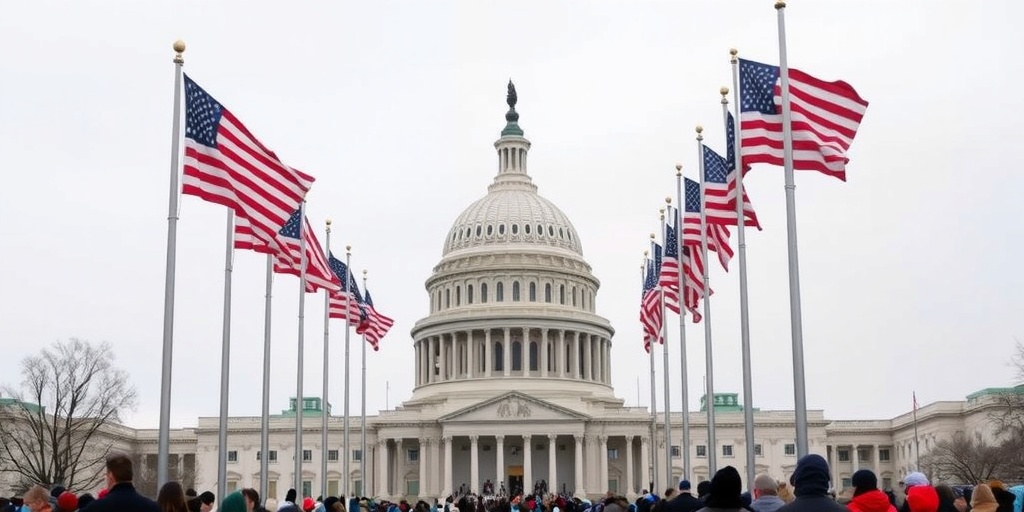
Title: Flags to Fly at Full Staff During Trump’s Inauguration Amidst Controversy
In a bold move that has sparked significant debate, Speaker of the House Mike Johnson has announced that American flags at the Capitol will be temporarily raised to full staff on January 20 in preparation for the inauguration of President-elect Donald J. Trump. This decision effectively circumvents the presidential order issued by President Joe Biden last month, which mandated that flags be flown at half-staff for a mourning period following the passing of former President Jimmy Carter.
This decision is particularly noteworthy, considering the context surrounding Trump’s inauguration amid a national period of mourning. President Biden’s directive to lower flags to half-staff was in accordance with both tradition and the U.S. flag code, honoring the legacy and service of President Carter, who died on December 29, 2023. The traditional mourning period is typically observed for 30 days following the passing of a former president, making this declaration a contentious point of discussion among lawmakers and citizens alike.
In his announcement, Speaker Johnson emphasized the significance of the day, stating, “On January 20, the flags at the Capitol will fly at full staff to celebrate our country coming together behind the inauguration of our 47th president, Donald Trump.” Johnson indicated that following the inauguration, the flags would revert to half-staff the next day to continue honoring President Carter through the end of January. This proclamation underscores the delicate balance between honoring a former leader and celebrating the transition of power, which is a hallmark of American democracy.
The announcement follows Trump’s expressed frustration over the potential imagery of flags at half-staff during his inauguration. In a social media post, Trump voiced his displeasure with the situation, claiming that “Democrats are all ‘giddy’” about the prospect of the flags being lowered, and he also stressed that “no American can be happy about it.” His remarks reflect a broader narrative regarding political symbolism and the significance assigned to presidential inaugurations in the United States.
White House Press Secretary Karine Jean-Pierre addressed the issue during a press briefing earlier this month, asserting that President Biden was not considering altering the flag order, stating that it would remain in place to honor President Carter’s service. This stance has led to further deliberation about the appropriateness of raising flags during a period designated for mourning and the implications of such actions against the backdrop of the current political climate.
The situation was further complicated when, shortly after Carter’s funeral services, flags at Trump’s private estate in Florida, Mar-a-Lago, were raised to full staff. Governor Greg Abbott of Texas also joined in solidarity by ordering that flags at the state capitol and other state buildings be raised to full staff for Inauguration Day. This action has drawn additional scrutiny and debate, as it raises questions about state versus federal observances surrounding national mourning.
In his statement regarding the flag order for Texas, Governor Abbott articulated a sentiment that resonates with Trump’s supporters, saying, “While we honor the service of a former president, we must also celebrate the service of an incoming president.” This juxtaposition of honoring the past while celebrating the future is a complex discourse that reflects the polarizing sentiments surrounding Trump’s presidency and the current political landscape.
Interestingly, Trump had previously claimed that his upcoming inauguration would be the first in history where flags would not be allowed to fly at full staff. However, historical records indicate that this is not the case. For instance, President Richard Nixon was sworn in for his second term on January 20, 1973, with flags at half-staff following the death of President Harry Truman just 25 days earlier. This historical precedent adds a layer of complexity to Trump’s assertions and provides a reminder of the significance of tradition in American political ceremonies.
As Inauguration Day approaches, this decision regarding the flags will undoubtedly continue to generate discussion among citizens, leaders, and historians alike. It raises essential questions about the nature of political symbolism, the responsibilities of public officials during periods of national mourning, and the impact of such decisions on the overall perception of leadership in America. As the nation prepares to witness the inauguration of Donald Trump, all eyes will be on Capitol Hill to see how these issues unfold and the broader implications for national unity and respect for historical traditions.
Stay Informed With the Latest & Most Important News
Previous Post
Next Post
-
 01New technology breakthrough has everyone talking right now
01New technology breakthrough has everyone talking right now -
 02Unbelievable life hack everyone needs to try today
02Unbelievable life hack everyone needs to try today -
 03Fascinating discovery found buried deep beneath the ocean
03Fascinating discovery found buried deep beneath the ocean -
 04Man invents genius device that solves everyday problems
04Man invents genius device that solves everyday problems -
 05Shocking discovery that changes what we know forever
05Shocking discovery that changes what we know forever -
 06Internet goes wild over celebrity’s unexpected fashion choice
06Internet goes wild over celebrity’s unexpected fashion choice -
 07Rare animal sighting stuns scientists and wildlife lovers
07Rare animal sighting stuns scientists and wildlife lovers













